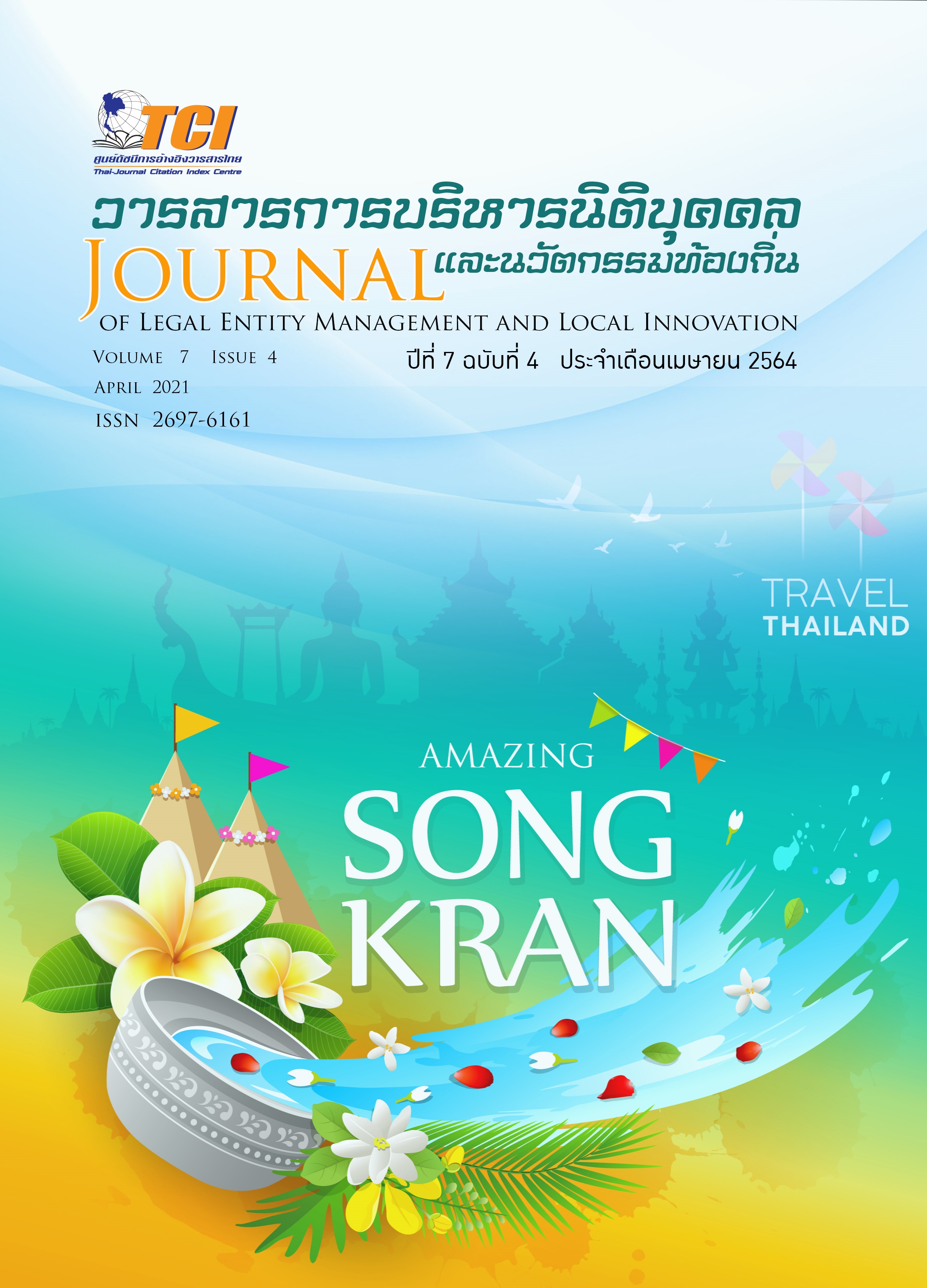Integrative Management for School Administration of Saha Wittayakhate Beungkan Network under the Secondary Educational Service Area Office 21
Keywords:
Integrative educational managementAbstract
The objectives of this research were to examine the integrative management for school administration of Saha Wittayakhate Beungkan Network under the Secondary Educational Service Area Office 21 and to make a comparison of the integrative management for school administration of Saha Wittayakhate Bungkan Network under the Secondary Educational Service Area Office 21 as classified by gender, educational level and work experience. The population studied comprised 249 teachers of Saha Wittayakhate Beungkan Network under the Secondary Educational Service Area Office 21, selected by using purposive sampling. The instrument used for collecting the data was a rating scale questionnaire developed by the researcher with IOC ranging from 0.67 to 1.00 and the reliability of .937. The statistics used for analyzing the collected data were percentage, mean, standard deviation, t-test and F-test with comparisons using the Scheffe's pair-wise differences. The research findings revealed that the integrative management for school administration of Saha Wittayakhate Beungkan Network under the Secondary Educational Service Area Office 21 was overall performed at high level. After item analysis, it was found that each aspect was performed at high level. The listed mean scores in order from the highest to the lowest included budget management, personnel administration, general management and academic administration. According to the comparison results, as classified by gender, it was found that the teachers’ opinions toward the integrative management for school administration of Saha Wittayakhate Beungkan Network were not different which was not consistent to the research hypothesis. As classified by educational level, it was found that the teachers’ opinions towards personnel administration and general management were different at the .05 level of significance and as classified by teachers’ work experience, the teachers’ opinions towards personnel administration and general management were significantly different at the .05 level. Differences were not found in other aspects of integrative management. Furthermore, the comparisons of pair-wise differences showed that, as classified by educational level of 3 age groups, it was found that the opinions of the teachers with master’s degree were different from the teachers with doctoral degree. Other pairs did not expressed different opinions


